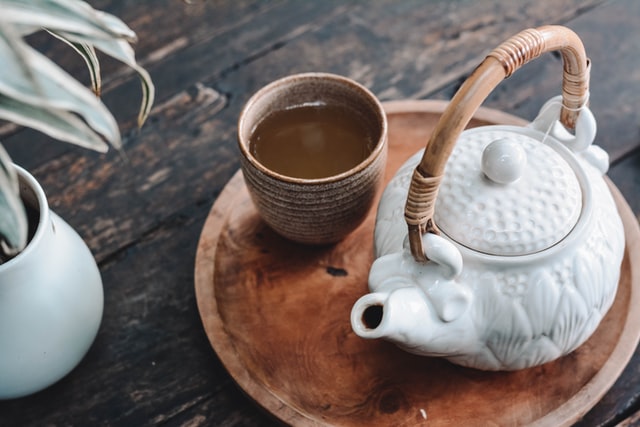How to Survive Getting Sick in China

Whilst venturing out into the unknown can be a life-changing experience, at some point, you might get sick. Amidst reading up on local food and culture sometimes we forget about the important stuff, like how to handle a medical emergency in a new city.
Perhaps one of the scariest things for a young female traveler is becoming ill in a place where nobody speaks English, which became a reality for me, soon after arriving in South China. After contracting what seemed like a terrible respiratory infection, struggling to breathe to the point of near collapsing and both refusing and giving in to local doctors, I managed to pick up a few tips that made dealing with illnesses here a little more bearable.
Here are some tips that you should take into consideration to help you survive in case you get sick in China.
How to Survive Getting Sick in China
Before you arrive
Regardless of whether it’s a simple case of contracting the common cold or severe food poisoning, it’s most likely that you’ll get sick within the first 7 – 10 days of arriving as your body readjusts to the new surroundings. Here’s what I recommend before leaving:

1. Pack an essential emergency kit.
Prescribed medication in China can be scary. Often these are combinations of Western and Chinese counterparts, and with no medical inserts and all labels written in Chinese characters, it can take hours to translate. Having essentials like Aspirin, Imodium, and a simple bronchodilator will help.
2. Be mindful of vaccinations required for areas you’ll be visiting.
The threat of bird flu, rabies and malaria are very real in certain cities so it’s best to check with your local GP a few weeks in advance. Also, do your own research. The CDC has a detailed page on health information for travellers in China: including relevant vaccinations, how to stay healthy, what to pack as well as updates on current health alerts.
3. Have suitable travel insurance.
It may be expensive but you can’t predict when things will go wrong. Understand what your insurance covers and find out how it works. Will you have to pay up front and be reimbursed later? Will local facilities accept direct payment from your insurance company? Carry your travel insurance card with you at all times.
4. Find out more about the surrounding medical facilities by requesting information from the agency you’re working with.
Where are the local hospitals? Which ones have the best quality of treatment? Are there any international doctors or expat clinics nearby? Keep a record of this information in a safe place. If you can’t find this information beforehand, look it up as soon as you arrive.
During your stay
The closer you are to metropolitan cities like Beijing and Shanghai – the easier it will be to find bilingual doctors. But what happens when you’re situated in a little town where simple questions like: where do I go, how do I get there and how much will it cost, become a nightmare?
1. If you’re suffering from minor illnesses, find a local pharmacy.
Unfortunately, most of these are non-English, so Google a few phrases to help widen your options and save you the embarrassment of acting things out. Be wary when something seems strange. Many pharmacies will try to sell you unnecessary medication, or more expensive generics so visit a reputable place like Super-Pharm and Watsons.
2. If you’ve reached the stage where professional care is needed, the first thing you should do is contact the agency you’re working with.
They should be able to help with translation and transportation to the nearest facility.
3. Make sure that you can be helped.
What happens when you call an ambulance but can’t communicate with the operator? What happens when people want to help but can’t speak your language? Have a card in your bag with important information like your name and emergency contact numbers (local and international), in both English and Chinese. It’s a good idea to have at least two local contacts who can speak Chinese. Also, keep a record of any chronic illnesses and allergies.
4. Entering a Chinese medical facility is scary.
The level of quality, cleanliness, service and price varies from centre to centre, making it hard to predict exactly where you’ll get the best care. If you feel unsafe, leave. If you want a second opinion – get it. Whilst there are some great doctors, there are also those looking to make a quick buck. They won’t hesitate to send you for unnecessary tests, prescribe extra medication and admit you to surgery. Remember it’s your body and you deserve the best.
5. Register with your embassy upon arrival.
Many people forget to do this and whilst it may seem unimportant, one of the first steps authorities will take if you cannot be identified, will be to contact consulate offices. By registering upon arrival, and having relevant documentation on you at all times, this will reduce the time taken for proper care to be delivered in an emergency.
After your trip
1. Even if you’ve recovered, it’s still a good idea to visit your local GP and get checked out again.
Provide all relevant details, including where you went, what you did and ate and most importantly, show him the prescribed medication. Every detail is important to ensure a complete recovery.
The truth is, getting sick whilst in China is inevitable, especially when you’re travelling to a poor city with bad air and water quality. After getting sick, refusing and agreeing to visit a local doctor and trying both, western generics and traditional medication, I finally recovered.
Even though I forgot I had travel insurance, treatment only cost a mere $20. I had to trust a bilingual local to translate my symptoms and yes, it scared the hell out of me. Whilst I had no idea if the translation was correct, the prescribed medication helped and within a week, I recovered. Scary, yes… but a girl’s got to do, what a girl’s got to do… to survive.
How to Survive Getting Sick in China Related Reading
How I Survived a Visit to a Chinese Hospital
China Travel Tips: Amanda’s Take on Health, Safety and Romance
12 Tips for the First-Time Traveller to China
The Good News About Traveling to China as a Woman
Have you traveled to China? What were your impressions? Email us at [email protected] for information about sharing your experience and the advice with the Pink Pangea community. We can’t wait to hear from you.
How to Survive Getting Sick in China photo by Unsplash.








